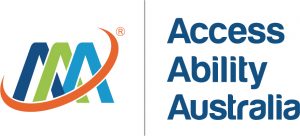Access Keys
Access Keys are customised accessibility guides that provide convenient information about accessing venues, events and programs at the click of a button. They are universally designed and suitable for all people, regardless of ability. Our Access Key products ensure high levels of quality and accurate information.
Access Key details may comprise, among other things, directions on how to reach a preferred venue or event, parking facilities, layout, accessibility in and around the venue or event, the location of the reception/ticketing booth and its services, identification of the staff by their uniform, bathrooms including their environmental features, food and drink services, programming, experiences, accessible amenities, and a host of other valuable information.
Access Keys help users understand what to expect from a specific experience before attending, help to determine the suitability of an experience, help to alleviate anxiety about visiting new places, support the interpretation of circumstances and process new concepts whilst in attendance and are also a great tool for fostering independence.
Access Keys are provided in a Portable Document Format (PDF) and can be downloaded free of charge from our website’s library page and the websites of the clients we collaborate with. Access Keys can be printed. They are mobile responsive and can be downloaded and accessed on any mobile device, via our website.
For people who are blind or live with low vison, every Access Key is also available for free download in large print and formatted for use assistive technology from our website library page. In collaboration with Vision Australia, Access Keys are available in Braille or audio. Please contact Access Ability Australia for further information.
For optimum outcomes and positive experiences, Access Keys are available online to help you prepare for your visit in advance. Full implementation guidelines are provided with every Access Key.
Who may benefit from Access Keys?
Access Keys are universally designed for a wide audience regardless of ability. This may include, but are not limited to the following:
- Autism spectrum disorder
- Ageing population
- Parents with prams
- Educators
- Intellectual disabilities
- Severe language disorders
- Acquired brain injuries
- Sensory impairment
- Sensory Processing Disorder
- Dementia
- Deaf or hard of hearing
- Temporary disability
- Alzheimer’s
- Attention deficit hyper disorder (ADHD)
- Down syndrome
- Mental illness (anxiety, depression)
- Stroke
- Cognitive impairment
- Vision impairment
- People who do not speak English or Overseas visitors
Access Guides
Our Access Guide is an abridged version of our famed Access Key.
These guides provide a range of information people need to know prior to a visit to a new or unfamiliar venue and empowers them to determine the suitability of experience. They support people of all abilities to access venues and services efficiently, confidently and with dignity.
Including concise and succinct information, Access Guides are a great tool for fostering independence.
Communication Access
AAA Communication Access products and services include:
- Communication Access & Awareness Training (online)
- Customised communication boards
- Customised communication access tags
- Printed and enlarged communication wayfinding boards
- Communication access signs.
Our online Communication Access & Awareness Training is designed to increase knowledge of communication challenges as well as help learners understand the impacts for individuals. It is designed for front-line staff, event staff, customer service officers, team leaders, supervisors and managers, disability service providers, support workers, health care workers, educators and more.
Our communication boards at the venues and events we collaborate with display symbols that assist individuals with communication challenges in expressing themselves during their visit. They are a great tool for engaging in initial communication.
Communication tags work in the same way but are worn by staff on a lanyard at the venues and events we collaborate with.
Our printed and enlarged communication wayfinding boards at the venues and events we collaborate with are a great communication tool for individuals with communication challenges. They are ideal for communication between visitor and staff or between visitor and their communication partner. They are also a great navigational tool to help individuals plan their day.
Our communication access signs are used to support, or provide an alternative means of communication, for individuals with complex communication needs or who may speak a language other than English.
These signs are an easily understood tool designed for higher-level interaction with communication partners and peers. Importantly, they facilitate inclusive opportunities for users within natural settings.
Again, symbols are used to represent a range of different words to help people understand information and to share a message.
Watch the video below to view a AAA communication board in use within community.

Social Stories
Social Stories provide a clear explanation or description of a social situation. They give insights into thoughts and feelings of others. They may outline specific challenges and help individuals prepare for new experiences. They may also suggest strategies or responses for socially appropriate behaviour.
Social Stories are developed to help individuals with autism spectrum disorder, specific language disorders, social communication difficulties or cognitive delays and disability.
Our team of Social Story authors work with our AAA Network members to develop customised Social Stories for their venues, events and programs.
AAA Social Stories are used to prepare individuals for social interaction by providing clear information about specific social situations, outlining why they happen and what typical responses might be.
They can be used by any age group and can complement Access Key use or may be used in isolation. AAA Socials Stories can also be shared to praise successful completion of an accomplishment.
Social Stories include: